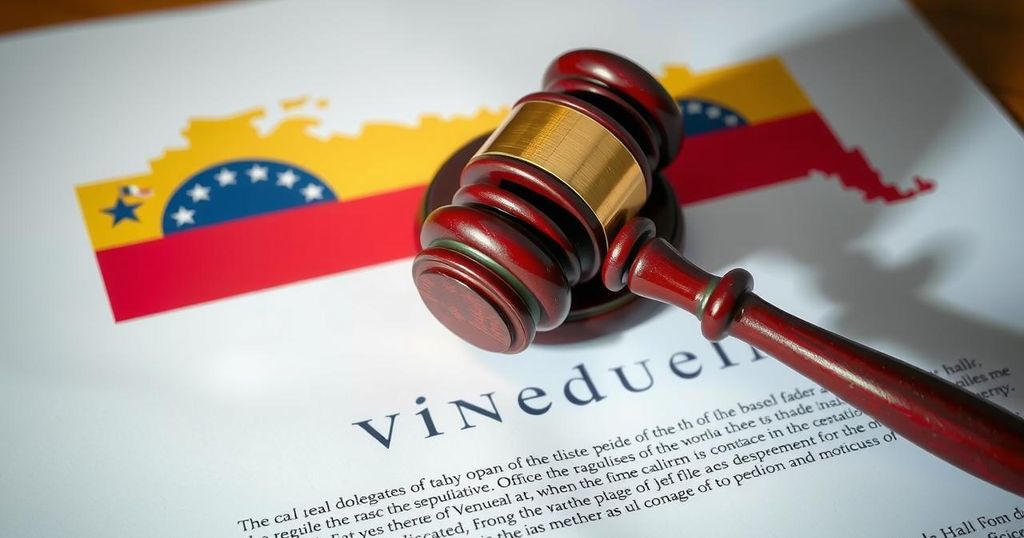President Trump’s proclamation targets Venezuelan nationals from Tren de Aragua, labeling them as a terrorist organization and prompting deportations under the Alien Enemies Act. However, this action faces legal challenges from the ACLU, arguing it exceeds presidential authority. A temporary restraining order has been granted to protect affected individuals.
On Saturday, President Trump issued a proclamation aimed at members of Tren de Aragua (TdA), declaring the group a “designated Foreign Terrorist Organization” and initiating a crackdown on affiliated Venezuelan nationals. This announcement asserts that TdA poses an “invasion” threatening U.S. territory, listing allegations including kidnappings, extortion, and drug trafficking.
The proclamation invokes the 1798 Alien Enemies Act (AEA), which has historically been utilized during wartime against enemy nationals. This marks the first instance in contemporary American history where a president has employed the AEA without a formal wartime declaration or recognized foreign aggression. Legal experts highlight the rarity of this statute’s application, previously only used against individuals during specific conflicts.
Following the proclamation, the American Civil Liberties Union (ACLU) and the Democracy Forward Foundation swiftly filed a lawsuit on behalf of five Venezuelans. They argue that the individuals are at risk of deportation, which could lead to imprisonment or torture in their home country. The plaintiffs contend that utilizing the AEA amidst peacetime circumvents established immigration procedures and exceeds the President’s authority.
The lawsuit cites breaches of multiple laws, including the Immigration and Nationality Act (INA) and the Fifth Amendment, which ensures due process. The claim emphasizes that neither Venezuela nor Tren de Aragua represents a nation capable of invading the U.S., thus questioning the legality and basis of the proclamation.
On Saturday afternoon, U.S. District Chief Judge James Boasberg granted a temporary restraining order to prevent the removal of affected Venezuelan nationals. Immigration officials are barred from deporting these individuals during this period, allowing for further legal review.
Critics regard the proclamation as a severe misuse of power, potentially undermining established immigration procedures. Arthur Spitzer, a lawyer with the D.C. ACLU, remarked that without a foreign military threat, President Trump’s actions are both unlawful and a direct assault on fundamental rights.
In summary, President Trump’s proclamation invoking the Alien Enemies Act against Venezuelan nationals associated with Tren de Aragua has encountered immediate legal challenges. Legal representatives assert that such actions overstep presidential authority in peacetime and violate numerous statutes. The temporary restraining order imposed by the court safeguards the affected individuals while the case is underway, drawing attention to the implications of the proclamation on civil liberties and immigration policy.
Original Source: www.jurist.org






